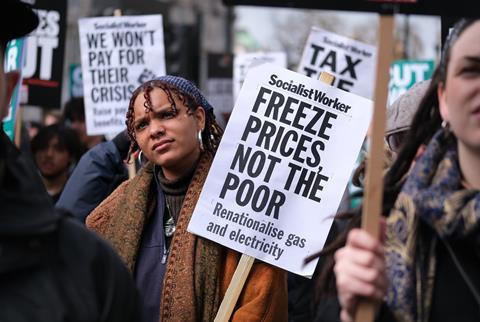From October, typical household energy bills could reach £3,549. Here’s our explainer of what the price cap means, how Christians should respond and where to go for help if you need it

What’s the energy price cap?
The energy price cap is set by the regulator of the energy market, Ofgem. The cap is currently £1,971 for the average household, but will rise to £3,549 from October. These figures are how much a typical household will be charged a year for their energy bills. The cap puts a limit on how much providers can charge customers in England, Scotland, and Wales for each unit of gas and electricity used. It also sets a maximum daily standing charge, which is what you pay for your home to be connected to the grid.
What’s causing this rise?
The war in Ukraine is threatening gas supplies, especially from Russia. At the same time, the rate at which consumer prices go up (inflation) is skyrocketing. The 10.1% figure from July is the highest rate in 40 years.
What impact will this have?
The brutal reality is that for millions of people, this latest price cap rise, coupled with inflation, means they will be forced to choose between eating and heating. Children are being advised to wear extra layers to help save energy. Pensioners who live alone will have to weigh up whether they can afford to put the central heating on and for how long. What’s even more troubling is that the energy price cap is forecast to rise to £6,616 from April 2023, making an already dangerous situation even worse.
How should Christians respond?
First, let’s be clear about the responsibilities of the government. The Bible teaches us that God instituted governments as an act of his grace. They exist to restrain evil, punish wrongdoing and promote what is right.
Time and again in the Bible, we see God’s heart for the most vulnerable in society. In the Old Testament, this is demonstrated by God’s own advocacy for the poor, orphans, widows and foreigners in Israel. Historically, these groups were the most vulnerable of all and we learn that God cared deeply about how they were treated.
Because of this, it is reasonable to expect the government to step in and provide help for those who need it most. The problem at present is that we have no functioning government, because we’re waiting for the new prime minister to be appointed.
The price rise comes at a bad time. With such a shocking, sudden development it’s understandable that many of us will feel paralysed by fear. What can we do in response to what is happening? One answer is to write to your MP and urge them to put as much pressure as they can on the government to act swiftly.
Secondly, we must pray. We know that God acts in response to the prayers of his people. Pray for your neighbours who will struggle. Pray for government and civil servants who will seek to address this crisis. Pray for those living alone, for families on low incomes, for those already dependent on food banks.
Pray for your neighbours who will struggle. Pray for government and civil servants who will seek to address this crisis.
Thirdly, the Bible says that God loves a cheerful giver. It says that if we sow generously, so we will reap. If these rises will not impact you as much as others, what support can you give? How can you bless others with the resources you have been blessed with yourself?
Fourthly, Jesus commands us not to worry. And he explicitly links worry to things like eating and clothing. He’s not being dismissive of economic reality – he spoke the command at a time when plenty of his people were facing their own cost-of-living crisis! No, Jesus based the command on the ability of God to provide for us. As God’s people, whatever our economic circumstances, we can trust God’s provision.
Finally, we can consider practical steps to conserve energy. This article from the MoneySavingExpert website is very helpful on practical steps you can take to save energy.
Several Christian organisations can help if you’re struggling with debt, paying your bills or feeding yourself or your family:
Christians Against Poverty (CAP) can provide help and resources for anyone struggling with debt
Find your nearest foodbank by visiting the Trussell Trust website. Many also offer additional help, such as school uniform banks, furniture and household goods
Jubilee + equips local churches to change the lives of those in poverty in their local communities
Love Your Neighbour provides help with food, debt, unemployment and wraparound care
The newly launched WarmWelcome campaign is supporting organisations, including many churches, in opening their doors to provide a warm welcome for those struggling to heat their homes this winter





































No comments yet